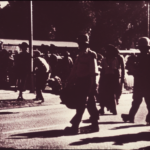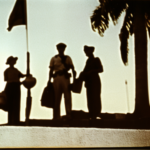One-line summary:
Coriolanus is a tragic play by William Shakespeare that explores themes of power, pride, and the consequences of political manipulation.
The Rise of Coriolanus
Coriolanus, a Roman general, is hailed as a hero for his military victories against the Volscians. However, his disdain for the common people and his refusal to engage in political flattery make him an unpopular figure among the citizens of Rome.
Political Manipulation and Betrayal
Coriolanus’s mother, Volumnia, and his mentor, Menenius, urge him to seek political office. However, his inability to connect with the common people and his uncompromising nature make him an easy target for manipulation by his political opponents, led by the tribunes Sicinius and Brutus.
The Fall of Coriolanus
Coriolanus’s political enemies succeed in turning the citizens against him, leading to his banishment from Rome. Consumed by anger and a desire for revenge, he joins forces with his former enemies, the Volscians, and leads an attack on Rome.
As the play unfolds, Coriolanus’s tragic flaw becomes evident: his pride and inability to adapt to the demands of politics. Despite his military prowess, his disdain for the common people and his refusal to engage in political flattery ultimately lead to his downfall.
Coriolanus’s rise to power is marked by his military victories against the Volscians, a rival faction. His bravery and skill on the battlefield earn him the respect of his fellow soldiers and the admiration of the Roman citizens. However, his disdain for the common people and his refusal to engage in political flattery make him an unpopular figure among the citizens of Rome. Coriolanus believes that his actions on the battlefield should be enough to earn him the respect and loyalty of the people, but he fails to understand the importance of public opinion in politics.
As Coriolanus’s political opponents, led by the tribunes Sicinius and Brutus, sense his vulnerability, they manipulate the citizens’ discontent and turn them against him. They accuse him of being a tyrant and a threat to the people’s freedom, further fueling their anger. Coriolanus’s mother, Volumnia, and his mentor, Menenius, urge him to seek political office and win over the citizens through flattery and compromise. However, Coriolanus remains steadfast in his refusal to engage in such tactics, believing them to be beneath him.
The citizens, swayed by the tribunes’ rhetoric, demand Coriolanus’s banishment from Rome. Despite his pleas for mercy, Coriolanus is exiled. Consumed by anger and a desire for revenge, he seeks refuge with his former enemies, the Volscians, and convinces their leader, Aufidius, to join forces with him in an attack on Rome. Coriolanus’s military prowess and strategic brilliance are once again on display as he leads the Volscian army against his former homeland.
However, when his mother and wife come to plead for Rome’s mercy, Coriolanus is torn between his loyalty to his family and his thirst for revenge. In a moment of introspection, he realizes the futility of his actions and the consequences of his pride. Ultimately, he decides to spare Rome and is subsequently betrayed and killed by Aufidius.
Key takeaways from Coriolanus:
- Power and pride can blind individuals to the consequences of their actions.
- Political manipulation can exploit vulnerabilities and turn public opinion against even the most respected figures.
- The inability to adapt to the demands of politics can lead to downfall, regardless of one’s other strengths or talents.
One memorable quote from Coriolanus is:
“What is the city but the people?”
– Coriolanus
This quote highlights the play’s central theme of the tension between the individual and the collective, and the importance of the people in shaping the destiny of a city.












